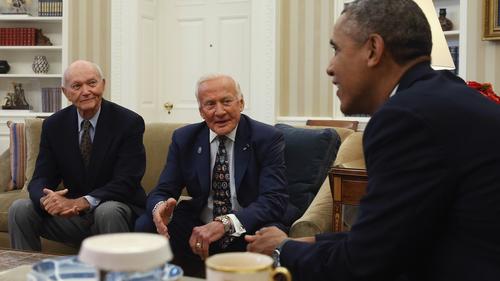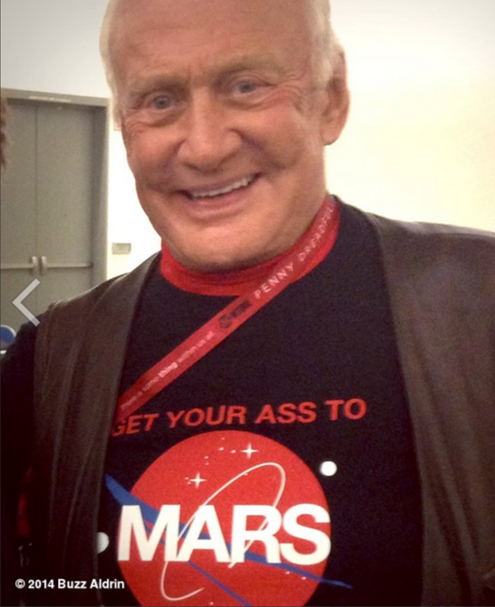 It was just a few weeks’ ago that we were celebrating the 45th anniversary of the first moon landing in the Oval Office.
It was just a few weeks’ ago that we were celebrating the 45th anniversary of the first moon landing in the Oval Office.
But according to the latest evidence, Americans have fallen out of love with space missions and that’s a terrible indictment on our thirst to further explore the boundaries of our tiny universe.
An 18-month enquiry by the National Research Council (NRC) has concluded that the project to put a man on Mars to be “unsafe, underfunded and doomed to fail” in its current form.
A real kick in the pants for NASA that must feel like it’s on the longest and loneliest spacewalk mission in history.
Apparently Americans were always ambivalent about reaching for the stars, claims Matthew Tribbe, author of a new book, No Requiem for the Space Age. The first moon landing sparked a surge of enthusiasm, not just in the US but around the world and I watched transfixed on our black and white TV set as a young boy here in the UK.
But the public appetite for adventure on such a scale evaporated just as fast as it had begun. A year after Neil Armstrong stepped on the moon, newspapers in New York and Philadelphia found that large majorities had forgotten his name, while most Americans thought his mission wasn’t worth the money.
 A combative NASA boss, Thomas Paine, conceived that NASA was caught in what he called a culture war in which his boffins were champions of conservative America.
A combative NASA boss, Thomas Paine, conceived that NASA was caught in what he called a culture war in which his boffins were champions of conservative America.
He called the Apollo missions a battle between “Squareland” and “Potland” where Squareland was outward-looking and rational. Its inhabitants knew how to make crops yield, save children from polio and send men to the moon. Potland, on the other hand, was a place infested with “sex and drug-abused leftists, radicals and primitivists” that would never see the point of putting a man on the moon.
But he turned out to be wrong on both counts. The public had become wary of scientists making bold claims for the advancement of the human race and never seeing any of these gains and those on the right of the political spectrum had grown tired of the Vietnam War and sought a greater degree of individualism, giving rise to popular subjects such as transcendental meditation, introspection, and even reincarnation.
Today’s polls suggest that more Americans know Armstrong’s name than they did back in 1970—his exploits are taught at school, and celebrated in such works as “The Right Stuff”, a hit book and film. The moon landings are popularly remembered as a bright spot in a bleak period. But that involves selectively remembering the past.
The NRC’s report on NASA and the Mars mission comes to a striking conclusion about why Americans still fly into space at all. It’s not because the public strongly wants them to. Instead, US astronauts fly so they don’t become extinct and leave it to other nations to boldly go where no man has gone before.














Recent Comments